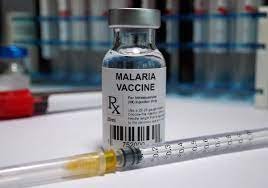Korede Abdullah in Lagos
The World Health Organization (WHO) has prequalified the first diagnostic test for glucose-6-phosphate dehydrogenase (G6PD) deficiency, a significant milestone in safely delivering WHO-recommended treatments to prevent relapse of Plasmodium vivax (P. vivax) infection.
The prequalification of this diagnostic test on Monday, marks a crucial step in facilitating safe and effective P. vivax malaria treatment, reaffirming WHO’s dedication to ensuring equitable access to life-saving health solutions globally.
The STANDARD G6PD System diagnostic tool, manufactured by South Korea-based SD Biosensor, Inc., is a semi-quantitative, near-patient solution designed for measuring G6PD enzyme activity in capillary or venous whole blood.
According to WHO, some 500,000 people die each year from malaria, most of them children. The prequalification of this test follows the recent prequalification of two new tafenoquine products for anti-relapse treatment of P. vivax malaria.
- vivax malaria is endemic in all WHO Regions except the European Region, with an estimated 9.2 million clinical cases occurring in 2023. G6PD deficiency, a genetic condition, affects over 500 million people worldwide.
While most people are unaware of their G6PD deficiency, certain drugs administered to prevent malaria relapse can result in acute haemolysis. The availability of this diagnostic test is expected to enhance the safe provision of anti-relapse treatments.
The STANDARD G6PD System diagnostic tool is designed for use in both laboratory and non-laboratory settings and operates with a hand-held device, delivering results in a few minutes.
This innovation is expected to improve access to safe and effective malaria treatment, particularly in resource-limited settings.



